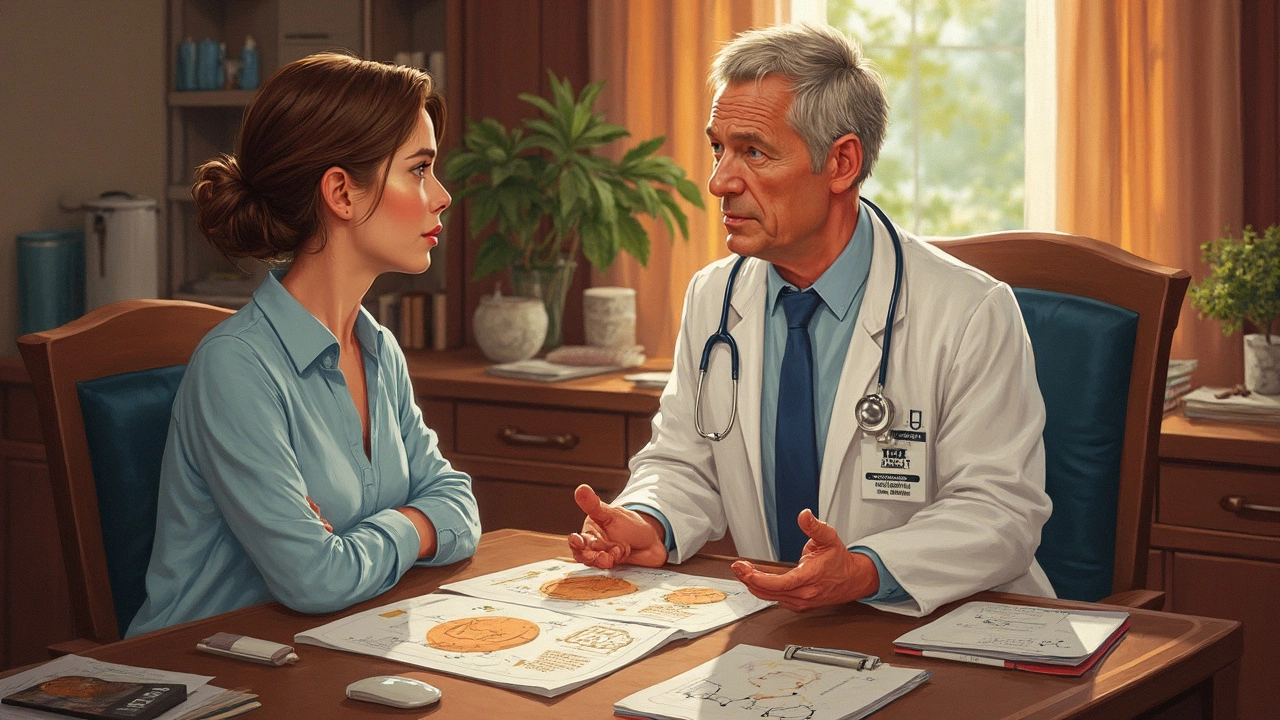Drug Reactions – What They Are and How to Deal With Them
If you’ve ever taken a new pill and felt dizzy, itchy, or just off, you’ve experienced a drug reaction. It’s the body’s way of saying something isn’t right with the medication. Most reactions are mild, but some can turn serious fast. Knowing what to look for and how to act can keep you safe and help you stay on track with your treatment.
Common Signs of a Bad Reaction
Every drug reacts differently, but there are a few red flags that show up over and over. Skin rash, hives, or itching often signal an allergic response. If you notice swelling in the face, lips, or tongue, treat it as an emergency – that’s called angio‑edema and can block your airway.
Inside the body, reactions might appear as nausea, vomiting, stomach cramps, or diarrhea. Headaches, dizziness, and a rapid heartbeat are also common clues. Some medicines affect the liver or kidneys, so dark urine, yellow skin, or persistent fatigue could mean organ stress.
If you feel any of these symptoms within minutes to days after starting a drug, stop taking it (if safe) and call your doctor right away. For severe breathing trouble, chest pain, or loss of consciousness, dial emergency services immediately.
Practical Steps to Stay Safe
The best defense is preparation. Keep an up‑to‑date list of every prescription, over‑the‑counter drug, and supplement you use. Share that list with any new doctor or pharmacist – they can spot dangerous combos before they happen.
Read the label and patient information leaflet carefully. Look for warnings about allergies, interactions, and foods to avoid. If something sounds confusing, ask your pharmacist to explain it in plain language.
Start new meds at a low dose when possible. This gives your body time to adjust and makes any reaction easier to spot. Pair the medication with food or water if the instructions say so – that can cut down stomach irritation.
Don’t skip follow‑up appointments. Your doctor may want blood tests or a quick check‑in after you begin a high‑risk drug. If you notice any new symptom, report it right away, even if it seems minor.
Finally, keep emergency contacts handy. Some people carry an allergy card or wear a medical bracelet that lists critical drugs and reactions. It’s a small step that can save lives when you’re unable to speak for yourself.
Understanding drug reactions doesn’t have to be overwhelming. By watching for common signs, keeping clear records, and staying in touch with your healthcare team, you can minimize risks and get the most out of your medicines. Got questions about a specific medication? Check out our articles on Indinavir, Orlistat, Motrin, and more – they dive deeper into side‑effects and safety tips for each drug.

